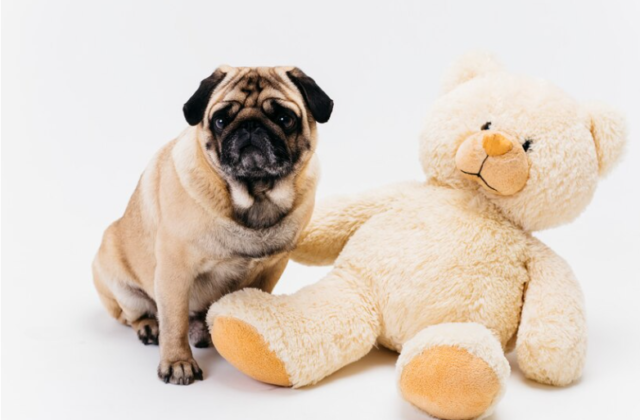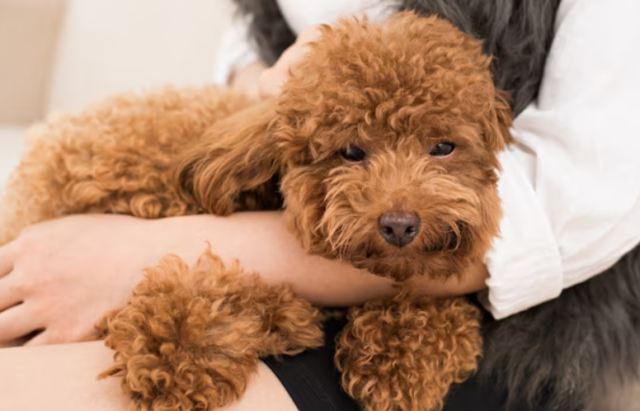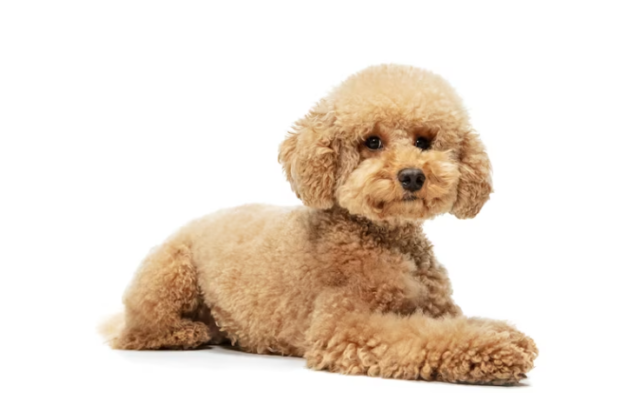Introduction
Have you ever wanted a fuzzy friend that is both cuddly and playful? The adorable Teddy Bear dog breed is the only option. Many animal enthusiasts have fallen in love with these captivating dogs because of their cute appearances and friendly personalities. We’ll explore the history, temperament, grooming needs, and other aspects of Teddy Bear dogs in this post. Prepare to meet your brand-new best buddy!

1. The Origins of the Teddy Bear Dog Breed
A tiny, hypoallergenic breed with a teddy bear-like look was what breeders sought to produce in the late 20th century, and this is how Teddy Bear Dog Breed came to be. These designer dogs are a crossbreed between the Shih Tzu and the Bichon Frise. By combining the desirable traits of these parent breeds, Teddy Bears were born — an irresistible blend of charm, fluffiness, and amiability.
2. Temperament and Personality
Teddy Bear dogs are renowned for their affectionate and sociable nature. They thrive on human companionship and are known to form strong bonds with their owners and families. These adorable canines are often great with children and get along well with other pets, making them ideal for multi-pet households. Their gentle and friendly temperament makes them well-suited for families of all ages.
3. Physical Appearance and Size
With their endearing teddy bear-like looks it’s no wonder these dogs are named after everyone’s favorite childhood toy. Teddy Bear dogs have a round faces, expressive eyes, and cute button noses. They boast a soft, non-shedding coat that comes in various colors, including white, black, brown, and combinations thereof. Teddy Bears are tiny to medium-sized canines, averaging 10 to 20 pounds (4.5 to 9 kilograms) in weight.

4. Grooming and Maintenance
Maintaining the luxurious coat of a Teddy Bear dog requires regular grooming. Due to their low-shedding fur, Teddy Bears are often considered hypoallergenic, making them suitable for individuals with allergies. Brushing their coat a few times a week helps prevent matting and keeps their fur soft and tangle-free. Additionally, occasional professional grooming sessions and regular dental care contribute to their overall well-being.
5. Exercise and Training
While Teddy Bear dogs are not overly demanding when it comes to exercise, they still benefit from daily walks and playtime. Engaging in interactive play sessions and providing mental stimulation through toys or puzzles helps keep them happy and healthy. These intelligent dogs are eager to please and respond well to positive reinforcement training methods. With patience and consistency, you can teach them various commands and tricks.
6. Health and Lifespan
Generally, Teddy Bear dogs are considered healthy and have a decent lifespan of around 12 to 16 years. It’s important to be aware of any potential health concerns that might arise in this breed, including as allergies, hip dysplasia, eye diseases, and oral and dental problems. Regular veterinary check-ups, a balanced diet, and maintaining a healthy weight are crucial for ensuring your Teddy Bear’s well-being throughout its life.
7. Finding Your Perfect Teddy Bear Companion
If you’re ready to welcome a Teddy Bear dog into your home, it’s important to find a reputable breeder or consider adopting from a rescue organization. Reputable breeders will provide health clearances for the parent dogs and ensure proper socialization of the puppies. Adopting from a rescue not only gives a deserving dog a second chance at a loving home but also brings immense joy and fulfillment to your life.
8. Teddy Bear Dogs as Therapy and Emotional Support Animals
The gentle and empathetic nature of Teddy Bear dogs makes them well-suited for therapy work and serving as emotional support animals. Their comforting presence and ability to connect with people can bring solace to those in need, whether it’s in hospitals, nursing homes, or individuals dealing with emotional challenges. Teddy Bear dogs have a special way of brightening someone’s day and providing unconditional love and support.
9. Teddy Bear Dogs and Children: A Perfect Match
One of the remarkable qualities of Teddy Bear dogs is their affinity for children. These furry companions excel in being patient, gentle, and tolerant, making them an excellent choice for families with young ones. However, it’s important to supervise interactions between dogs and children to ensure mutual respect and safety. Teaching kids how to properly interact with dogs and providing gentle guidance can foster a lifelong bond between them.
10. The Charm of Teddy Bear Puppies
Teddy Bear puppies are simply irresistible with their tiny size, playful antics, and adorable features. If you decide to bring a Teddy Bear puppy into your home, remember that they require extra attention and care during their early months. Proper socialization, crate training, and positive reinforcement are essential for raising a well-behaved and confident companion. Enjoy the delightful journey of watching your Teddy Bear puppy grow into a loving and loyal dog.

Conclusion
The enchanting Teddy Bear dog breed offers a perfect blend of companionship, charm, and love. Whether you’re seeking a loyal family pet, a therapy companion, or an emotional support animal, Teddy Bear dogs excel in fulfilling these roles. With their teddy bear-like appearance and affectionate personality, they have a way of brightening your day and bringing immeasurable joy to your life. Consider welcoming a Teddy Bear dog into your home and experience the unconditional love and devotion they have to offer.
FAQs
Q1: Are Teddy Bear dogs suitable for apartments?
Yes, Teddy Bear dogs adapt well to apartment living as long as they receive daily exercise and mental stimulation.
Q2: Do Teddy Bear dogs shed?
Teddy Bear dogs have a low-shedding coat, making them a good choice for individuals with allergies. Regular grooming helps maintain their coat.
Q3: Are Teddy Bear dogs easy to train?
Yes, Teddy Bear dogs are intelligent and eager to please, making them trainable with positive reinforcement techniques and consistency.
Q4: Do Teddy Bear dogs get along with other pets?
Generally, Teddy Bear dogs are sociable and get along well with other pets when properly introduced and socialized.
Q5: What is the average cost of a Teddy Bear dog?
The cost of a Teddy Bear dog varies depending on factors such as breeder reputation, lineage, and location, but generally ranges from $1,000 to $3,000.
Read also
- Unleash the Best Dog Food for Chihuahuas | A Guide for Optimal Nutrition
- Top 10 Dog Toys for Aggressive Chewers | Keep Your Dog Busy
- Top 10 Must-Have Dog Camping Gear for Your Next Adventure
- Dog Chewing Nails: Causes, Prevention, and Effective Solutions
- Best Dog Food for French Bulldogs: Secrets Revealed
- Top 10 Best Dog Brushes for Shedding and Grooming | Comparison & Reviews
- Find Your Perfect Match: Discovering the Ideal Target Dog Breed
- Dog Food Storage Container 40 lbs: Keeping Your Pet’s Nutrition Fresh and Secure
- 5 Foolproof Steps to Master Puppy Crate Training
- Puppy Barking at Night: A Complete Guide to Understanding and Addressing the Issue
- Top 10 Best Large Dog Car Seats for Safe Travel in 2023
- Unlock Duck Hunting Secrets: Most Effective Dog Breeds
- Hunting Dog First Aid Kit: Essential Supplies for Your Canine Companion
- Dog Supplements for Homemade Dog Food And Nutritions
- World of Blue Dog Breeds – Unveiling Their Unique Charisma
- How to Give a Dog a Pill: The Ultimate Guide
- Best Dog First Aid Kit: Ensuring Your Canine Companion’s Safety and Well-being
- Stop Dog Barking: Effective Techniques to Prevent Barking at Other Dogs
- Stop Your Dog’s Raw Skin Issues with Effective Chewing Treatment
- Exploring the Best Wet Dog Food for Your Canine Companion



